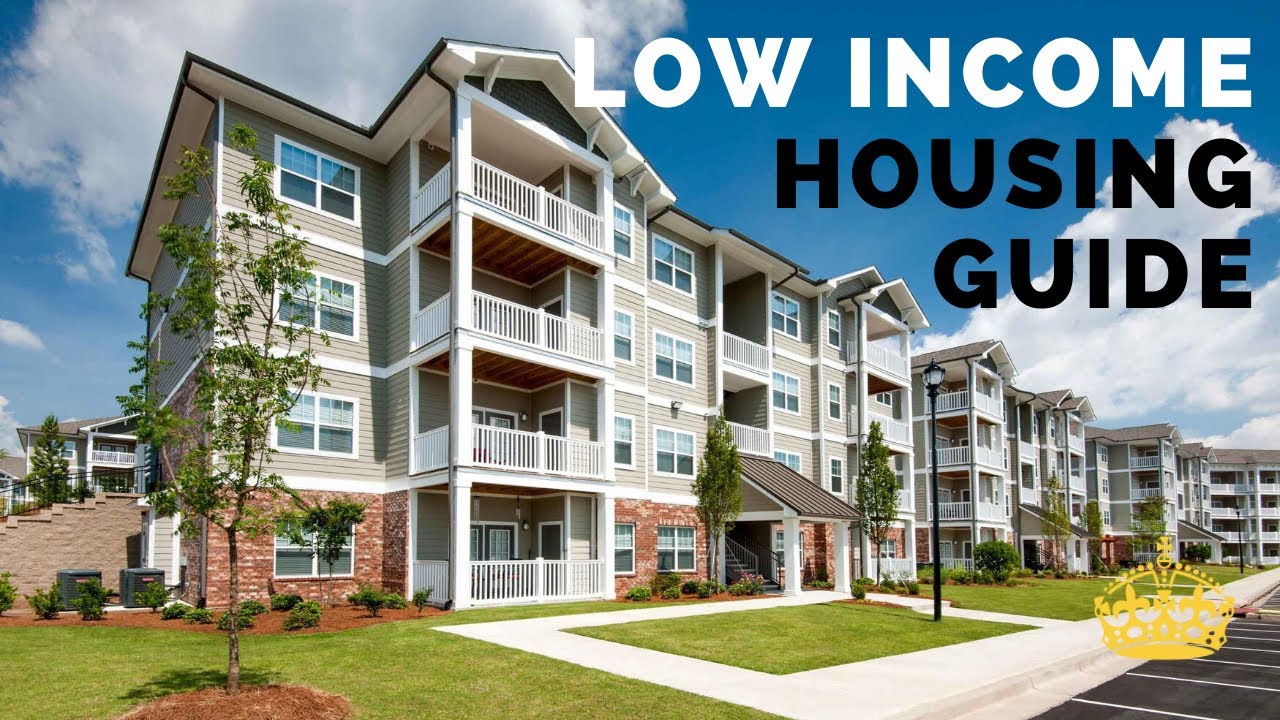Finding affordable housing abroad is a critical step for international students, balancing cost, convenience, and comfort in an unfamiliar country. Whether you’re studying in the bustling streets of London or the serene campuses of New Zealand, securing budget-friendly accommodation can significantly enhance your study abroad experience. This comprehensive guide provides practical strategies, insider tips, and real student stories to help you navigate the housing market abroad. From university dorms to shared apartments, learn how to find a place that feels like home without breaking the bank, tailored for international students as of April 26, 2025.
Why Affordable Housing Matters for International Students
Affordable housing is more than just a place to sleep—it’s a foundation for academic success and personal well-being. Here’s why it’s crucial:
-
Financial Savings: Lower housing costs free up funds for tuition, travel, and cultural experiences.
-
Convenience: Proximity to campus reduces commute time and transport expenses.
-
Community: Budget-friendly options like dorms foster friendships and cultural exchange.
-
Safety and Comfort: Affordable doesn’t mean compromising on secure, livable conditions.
-
Stress Reduction: A stable, affordable home lets you focus on studies and exploration.
 Image: An international student moving into their new accommodation abroad.
Image: An international student moving into their new accommodation abroad.
Watch: Tips for Finding Student Housing Abroad
https://youtu.be/ekvYTfH2M58?si=Q8WA2TsWQJtVN09W
This video shares practical advice on securing affordable housing for international students.
Types of Housing Options for International Students
Understanding the range of housing options helps you choose what fits your budget and lifestyle. Here are the most common:
-
University Dormitories (On-Campus Housing):
-
Description: Residence halls or student dorms managed by the university, often with shared facilities.
-
Cost: $5,000–$15,000/year (e.g., $400–$800/month in UK, $8,000–$15,000/year in USA).
-
Pros: Close to campus, social environment, utilities included, support services.
-
Cons: Limited privacy, strict rules, high demand.
-
-
Shared Apartments or Houses (Off-Campus):
-
Description: Rent a room in an apartment or house with other students or locals.
-
Cost: $300–$1,500/month (e.g., $500–$1,200 in UK, $400–$800 in Germany).
-
Pros: More independence, potentially cheaper, diverse housemates.
-
Cons: Variable quality, utility costs, longer commutes.
-
-
Homestays:
-
Description: Live with a local family, often including meals.
-
Cost: $400–$1,000/month (e.g., $500–$800 in Canada, $400–$700 in Japan).
-
Pros: Cultural immersion, meals included, family support.
-
Cons: Less independence, cultural adjustments.
-
-
Private Rentals:
-
Description: Rent an entire apartment or studio independently.
-
Cost: $800–$2,500/month (e.g., $1,000–$2,000 in Australia, $800–$1,500 in Netherlands).
-
Pros: Full privacy, personal space.
-
Cons: Expensive, requires managing utilities and contracts.
-
-
Student Residences (Private):
-
Description: Privately managed student housing with modern amenities.
-
Cost: $500–$1,500/month (e.g., $600–$1,200 in Singapore, $700–$1,500 in Ireland).
-
Pros: Modern facilities, social events, flexible leases.
-
Cons: Higher costs than dorms, competitive bookings.
-
Step-by-Step Guide to Finding Affordable Housing Abroad
Securing budget-friendly housing requires planning and research. Follow these steps to find the right accommodation:
Step 1: Start Research Early
-
Timeline: Begin 6–12 months before your program starts, as housing in popular student cities fills up quickly.
-
Resources:
-
University Housing Offices: Check your university’s website for dorm applications and off-campus listings.
-
Online Platforms:
-
www.student.com: Student-specific rentals worldwide.
-
www.housinganywhere.com: Sublets and rooms for students.
-
www.idealista.com (Spain, Italy), www.rightmove.co.uk (UK).
-
-
Local Sites: Use country-specific platforms like www.gumtree.com (Australia, UK) or www.wg-gesucht.de (Germany).
-
Social Media: Join Facebook groups like “International Students in [City]” or “Housing in [City].”
-
-
Tip: Contact your university’s international student office for tailored advice and vetted listings.
Step 2: Set a Budget
-
Estimate Costs: Factor in rent, utilities (electricity, water, internet), transport, and deposits (1–2 months’ rent).
-
Country Examples:
-
Germany: $300–$600/month (shared), $8,000–$12,000/year (living).
-
USA: $500–$1,500/month (shared), $10,000–$20,000/year (living).
-
Malaysia: $200–$500/month (shared), $5,000–$10,000/year (living).
-
-
Tip: Allocate 30–40% of your budget to housing to balance other expenses like food and travel.
Step 3: Prioritize Location
-
Proximity to Campus: Aim for a 15–30-minute commute by foot, bike, or public transport.
-
Safety: Research safe neighborhoods using local forums or university recommendations (e.g., avoid high-crime areas in cities like London or Los Angeles).
-
Amenities: Look for housing near supermarkets, public transport, and student hubs.
-
Tip: Use Google Maps to check commute times and explore neighborhoods virtually.
Step 4: Explore Housing Options
-
University Dorms: Apply early (3–6 months before arrival) via your university’s housing portal. Ideal for first-year students.
-
Shared Housing: Use platforms like HousingAnywhere or local classifieds to find roommates. Verify listings to avoid scams.
-
Homestays: Book through agencies like www.homestay.com or university partners for cultural immersion.
-
Private Rentals: Use sites like www.airbnb.com for short-term stays or www.zoopla.co.uk (UK) for long-term leases.
-
Student Residences: Book through providers like www.unilodgers.com for modern, all-inclusive options.
-
Tip: Compare at least 3–5 options to balance cost, location, and amenities.
Step 5: Verify Listings and Avoid Scams
-
Red Flags:
-
Requests for payment before viewing.
-
Listings with no photos or vague details.
-
Landlords refusing in-person or virtual tours.
-
-
Safety Steps:
-
Video call to view the property.
-
Verify landlord identity (e.g., through university or official documents).
-
Use secure payment methods; avoid cash or wire transfers.
-
-
Tip: Ask for a contract and read it carefully before signing.
Step 6: Understand Contracts and Costs
-
Lease Terms:
-
Duration (e.g., 6 months, 1 year).
-
Notice period (e.g., 1–2 months).
-
Included utilities (e.g., water, internet).
-
-
Additional Costs:
-
Security deposit (refundable, 1–2 months’ rent).
-
Agency fees (common in some countries like the UK).
-
Furnishings or maintenance fees.
-
-
Tip: Request a translated contract if it’s in a foreign language and consult your university’s housing office for advice.
Step 7: Book and Move In
-
Secure Housing: Confirm your booking with a signed contract and paid deposit.
-
Plan Logistics:
-
Book flights to arrive 1–2 weeks early to settle in.
-
Arrange temporary housing (e.g., Airbnb, hostel) if needed.
-
-
Move-In Checklist:
-
Inspect the property for damages and report them.
-
Set up utilities (if not included).
-
Purchase essentials (bedding, kitchenware).
-
-
Tip: Connect with roommates or dorm mates before arrival via social media or university groups.
Watch: Avoiding Housing Scams Abroad
This video offers tips to spot and avoid housing scams for international students.
Tips for Finding Affordable Housing Abroad
-
Apply Early for Dorms: University housing is competitive—submit applications as soon as they open.
-
Share Accommodation: Split rent and utilities with roommates to save 20–50% compared to private rentals.
-
Choose Affordable Cities: Study in cities like Lisbon (Portugal) or Kuala Lumpur (Malaysia) over London or Sydney.
-
Negotiate Rent: In some countries (e.g., Spain, Italy), landlords may lower rent for longer leases.
-
Use Student Discounts: Platforms like www.unidays.com offer housing-related deals.
-
Sublet Temporarily: Take over a short-term lease from another student via platforms like HousingAnywhere.
-
Leverage University Resources: Many universities offer housing databases or roommate-matching services.
-
Consider Homestays: Meals and utilities are often included, reducing overall costs.
Country-Specific Housing Insights
-
USA: Dorms ($8,000–$15,000/year) are popular for first-year students; shared apartments ($500–$1,500/month) in cities like Boston or Austin.
-
UK: University halls ($400–$800/month) in cities like Manchester; private rentals ($500–$1,200/month) outside London.
-
Germany: Affordable shared flats ($300–$600/month) in Berlin or Munich; dorms ($200–$400/month) via Studentenwerk.
-
Australia: On-campus housing ($500–$1,000/month) in Sydney; shared houses ($400–$800/month) in suburbs.
-
Japan: Guesthouses or shared apartments ($400–$800/month) in Tokyo; university dorms ($200–$500/month).
A Student’s Story: Sofia from Argentina
Sofia, studying at the University of Amsterdam, shares: “Finding housing in the Netherlands was tough due to high demand. I started searching eight months early and joined a Facebook group for international students. I found a shared apartment for €450/month near campus, splitting costs with two roommates. The university’s housing office helped verify the contract, and now I love my cozy home and bike rides to class!”
Challenges and How to Overcome Them
-
High Demand: Book early or consider suburbs with lower rent.
-
Scams: Verify listings through university resources or trusted platforms.
-
Language Barriers: Use translation apps or ask for help from university staff.
-
High Costs: Opt for shared housing or countries with lower living costs (e.g., Germany, Malaysia).
-
Cultural Differences: Discuss expectations with roommates or host families to avoid misunderstandings.
Frequently Asked Questions (FAQs)
-
How do I find affordable housing abroad?
Start early, use university housing offices, online platforms like student.com, and join social media groups for student housing. -
What are the cheapest housing options for international students?
University dorms, shared apartments, and homestays are typically the most budget-friendly. -
How much does housing abroad cost?
Costs vary: $200–$600/month in Germany, $500–$1,500/month in the USA, $300–$800/month in Malaysia. -
When should I start looking for housing abroad?
Begin 6–12 months before your program to secure affordable options. -
How can I avoid housing scams?
Verify listings, avoid upfront payments without viewing, and use trusted platforms or university resources. -
Are university dorms better than private rentals?
Dorms are convenient and social but offer less privacy; private rentals provide independence but can be pricier. -
Can I negotiate rent abroad?
Yes, in some countries (e.g., Spain, Italy), especially for long-term leases or shared housing. -
What’s included in a housing contract?
Rent, lease duration, utilities, deposit, and notice period. Always read carefully. -
How do I manage housing costs on a student budget?
Share accommodation, choose affordable cities, and use student discounts. -
Are homestays a good option for international students?
Yes, they offer cultural immersion and often include meals, but they may limit independence.
Start Your Housing Search Today!
Finding affordable housing abroad is a key step to a successful study abroad experience. Take action now to secure your home away from home:
-
Explore University Housing: Check your university’s housing portal for dorms and vetted listings.
-
Search Online: Visit www.student.com, www.housinganywhere.com, or local platforms.
-
Join Communities: Connect with students via Facebook groups or university forums for housing tips.
Your study abroad adventure begins with a place to call home—start your housing search today and make your global education dream a reality!










